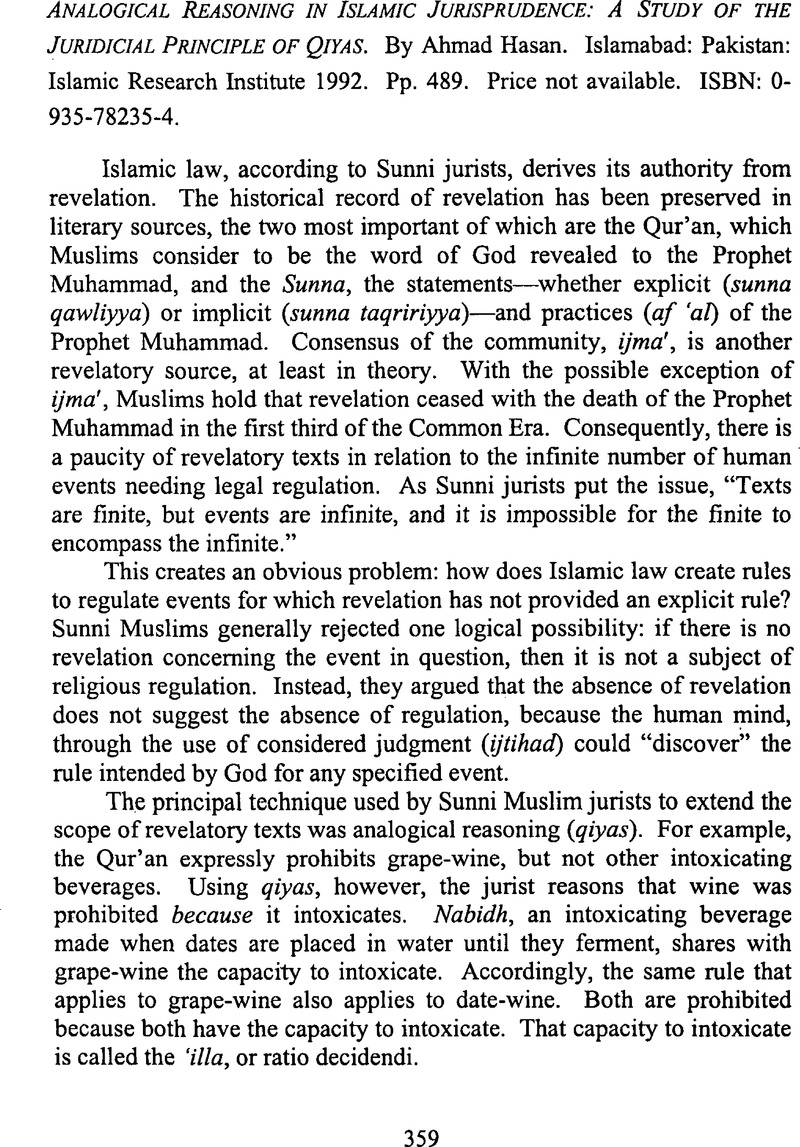Article contents
Analogical Reasoning in Islamic Jurisprudence: A Study of the Juridicial Principle of Qlyas. By Ahmad Hasan. Islamabad: Pakistan Islamic Research Institute1992. Pp. 489. Price not available. ISBN: 0-935-78235-4.
Published online by Cambridge University Press: 24 April 2015
Abstract

- Type
- Book Reviews
- Information
- Copyright
- Copyright © Center for the Study of Law and Religion at Emory University 2000
References
1. All citations in the text refer to the book under review.
2. The Zahiris were a legal school that originated in third century Baghdad, although one of their most forceful spokesmen was Ibn Hazm, who lived in Andalusia in the late fourth and early fifth Islamic centuries. At the risk of oversimplifying, this group of jurists rejected qiyas either because they thought it was too unreliable as an epislemological matter, or because its use was prohibited by revelation. The Shi'a, in contradistinction to the Zahiris, are a theological, rather than a legal, school. It is an abbreviation for the longer term shi at ‘Ali, or the “Partisans” of Ali b. Ab Talib, the son-in-law of the Prophet Muhammad. Because they accepted the notion of an infallible Imam, classical Shi'i doctrine rejected qiyas, the conclusions of which were at best merely probable. Later Shi'i scholars, however, began to accept probable arguments as sufficient for establishing a rule of law, although they maintained a formal rejection of qiyas.
- 2
- Cited by




